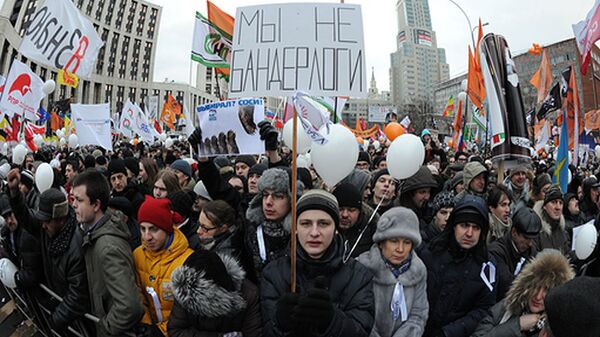Moscow authorities dismissed on Friday a plan, proposed by critics of Prime Minister Vladimir Putin, to hold a 50,000-strong march on February 4, RIA Novosti reported.
A group of opposition activists planned a five-hour march on February 4, a month before the presidential elections, along the Garden Ring Road in downtown Moscow. But Deputy Mayor Alexander Gorbenko said that “the route cannot be approved due to security concerns.”
Gorbenko proposed to change the date for February 5, hold the march at other venue and cut the number of protesters to 10,000.
Over 20,000 people have already signed up on Facebook to participate in the protest.
Dmitry Bykov, a writer and an opposition activist, told Kommersant-FM radio station on Friday that the organizers of the march would discuss the alternative routes. He however did not rule out holding an unauthorized protest if negotiations with the city’s officials fail.
Bykov also said that the opposition did not want to hold “static” protests anymore.
Last month rallies against suspected vote fraud in favor of Putin’s United Russia party at the December 4 parliamentary polls drew tens of thousands of protesters, who demanded rerun of the elections and implementing liberal reforms.
Between 30,000 and 60,000, according to independent estimates, rallied on Bolotnaya Square on December 10, and between 45,000 and 100,000 on the Sakharov Avenue on December 24.
Putin, who is seeking to return as Russia's president after March elections, was one of the main targets of the protesters, who accused him of miring political legislation in red tape during his two previous presidencies in 2000-2008, suppressing political opposition.
The Kremlin launched a reform to liberalize political legislation following the protests, but it would only come into force in time for the next Duma elections in 2016.




